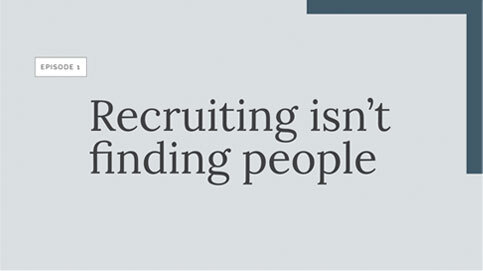August 12, 2025
Seven Years, Two Exits: Why Long-Term Search Partnerships Work
Seven years ago, I got a call from a newly hired CEO. He'd just joined a $100 million family-owned drug discovery tools company that was in trouble. Revenues were declining, quality problems were mounting, and the family wanted out.
"I need a VP of Sales who can turn around our revenues," he said.
That first search led to a seven-year relationship that would see the company through two successful exits. It's a case study in why executive search works best when the search firm and the client develop a deep, long-term business partnership.
Building the Turnaround Team
The sales leader we placed delivered immediate results. With revenues growing, we tackled other problems. We recruited a VP of Quality to fix issues undermining customer confidence. We brought in supply chain and SIOP leaders to get inventory under control.
I developed a deep understanding of the business and company culture. Because I knew the company so well, projects launched faster, more candidates were sold on the opportunity, and cultural mismatches were avoided. We built a relationship of deep trust.
Within four years, the company sold to private equity. The declining family business had become an attractive, professionally managed asset.
The Second Act
Following the sale, the CEO became Chairman, and his former lieutenant took over. Because we'd worked together during the turnaround, the new CEO and I hit the ground running.
The company needed to scale. We recruited a VP of HR to build infrastructure, a CFO who understood how to work with private equity partners, and a VP of Manufacturing to grow operations without sacrificing quality. We also placed several second-level leaders who'd become the next generation of leadership.
By year seven, the company sold again to another PE firm at a premium valuation.
Why This Worked
After seven years, I knew the company cold. That knowledge led to fast, high-quality results.
Just as importantly, I'd earned the client’s trust. When they weren't sure what they needed, we could figure it out together. I acted as if I were a virtual member of the management team. The depth of relationship helped make our work together successful and fun.
The Bottom Line
The right leadership team can transform a business. The wrong hires can sink it. In that context, the difference between a search partner who knows your business and one who doesn't isn't measured in recruiting fees. It's measured in enterprise value.
Find a search consultant who delivers. Then stick with them. The relationship will deliver value you couldn't have imagined.




















































